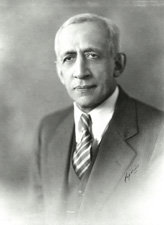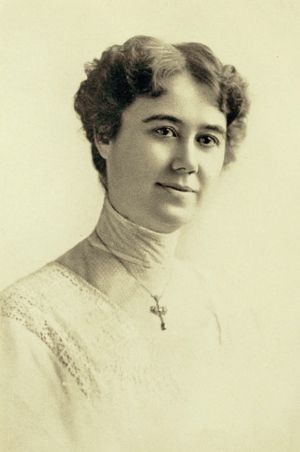Edward P. Costigan facts for kids
Quick facts for kids
Edward P. Costigan
|
|
|---|---|
 |
|
| United States Senator from Colorado |
|
| In office March 4, 1931 – January 3, 1937 |
|
| Preceded by | Lawrence C. Phipps |
| Succeeded by | Edwin C. Johnson |
| Personal details | |
| Born | July 1, 1874 King William County, Virginia |
| Died | January 17, 1939 (aged 64) Denver, Colorado |
| Resting place | Fairmount Cemetery, Denver, Colorado |
| Nationality | American |
| Political party | Democratic (after 1914) |
| Other political affiliations |
Republican (before 1912) Progressive "Bull Moose" (1912-1914) |
| Education | Harvard University |
| Occupation | Lawyer, politician, activist |
| Profession | Law |
Edward Prentiss Costigan (July 1, 1874 – January 17, 1939) was an important American politician. He was a member of the Democratic Party. Costigan represented Colorado in the United States Senate from 1931 to 1937. He also helped start the Progressive Party in Colorado in 1912.
Contents
Edward Costigan's Early Life and School
Edward Prentiss Costigan was born on July 1, 1874. His birthplace was near Beulahville, Virginia in King William County, Virginia. When he was three years old, his family moved to Lake City, Colorado. A year later, they settled in Ouray.
His father became a judge in San Miguel County, Colorado. Both of his parents were interested in mining. They owned a mine called Belmont. The family later lived in Denver. Edward's mother was a well-known member of the Denver Women's Club.
Costigan went to public schools in Denver. This included East Denver High School. He studied law and became a lawyer in Salt Lake City in 1897. He then graduated from Harvard University in 1899. His brother, George Purcell Costigan, Jr., also became a lawyer and a professor.
Edward Costigan's Political Career
After finishing school, Edward Costigan moved to Denver, Colorado and worked as a lawyer. In 1902, he won an election to be a state representative. However, a dispute stopped him from taking his seat. This led him to fight for fair elections for more than ten years.
In 1906, he became a lawyer for groups like the Honest Election League. He also worked for the Law Enforcement League for two years. He helped create a "local option" law, which allowed communities to decide on alcohol sales. This law was upheld by the Colorado Supreme Court. In 1910, Costigan led the Dry Denver Committee. He was also president of the Civil Service Reform Association of Denver.
Fighting for Workers' Rights
Costigan continued his law practice during this time. He handled cases about shipping prices for businesses. He also worked as a lawyer for the United Mine Workers of America in 1914. This was during a big investigation into the Colorado coal strike. Costigan successfully defended many people involved in the strike.
Joining the Progressive Party
Costigan was first a Republican. But in 1912, he helped start the Progressive Party in Colorado. He tried to become governor in 1912 and 1914 but did not win.
In 1917, President Woodrow Wilson appointed Costigan to the United States Tariff Commission. He worked there until 1928, then went back to practicing law. In 1930, he was elected to the U.S. Senate as a Democrat. He served from March 4, 1931, to January 3, 1937.
Helping the Sugar Industry: Jones–Costigan Amendment
In 1934, Senator Costigan helped create the Jones–Costigan amendment. This was an addition to the Agricultural Adjustment Act. It helped protect the U.S. sugar industry, including sugar from Colorado beets. This was a very important issue for Costigan and his wife, Mabel.
This new law changed the sugar industry. It made it illegal to hire workers under 14 years old. It also set an eight-hour workday limit for those aged 14 to 16. Mabel Costigan was especially concerned about children working in sugar beet fields. She was a member of the National Child Labor Committee.
Fighting for Justice: Costigan–Wagner Bill
In 1934, Costigan and Senator Robert F. Wagner from New York worked together. They proposed a federal law against lynching. President Franklin D. Roosevelt worried that supporting this bill would make him lose votes. He thought he might lose support from white voters in the Southern United States. This could affect the 1936 presidential election.
Many members of Congress supported the Costigan–Wagner Bill. However, a group of Southern senators managed to stop it in the Senate. Even though the bill did not pass, the national discussion it caused brought a lot of attention to the problem of lynching. By the mid-1930s, the number of lynchings each year had dropped significantly.
Edward Costigan's Personal Life
Edward Costigan married Mabel Cory on June 12, 1903. They had been classmates in high school. Mabel was very active in church, education, and community groups. She was an expert in Sunday school teaching and was a lecturer.
Mabel was also president of the Woman's Club of Denver. She led the industrial committee for the Colorado State Federation of Women’s Clubs. She strongly supported child labor laws. She was especially focused on stopping children from working in sugar beet fields. Mabel was part of the National Child Labor Committee's advisory council. She also cared about the challenges faced by people born in other countries who worked in the U.S.
After leaving the Senate, Edward Costigan retired from his work. He passed away on January 17, 1939. He was buried at Fairmount Cemetery in Denver.


